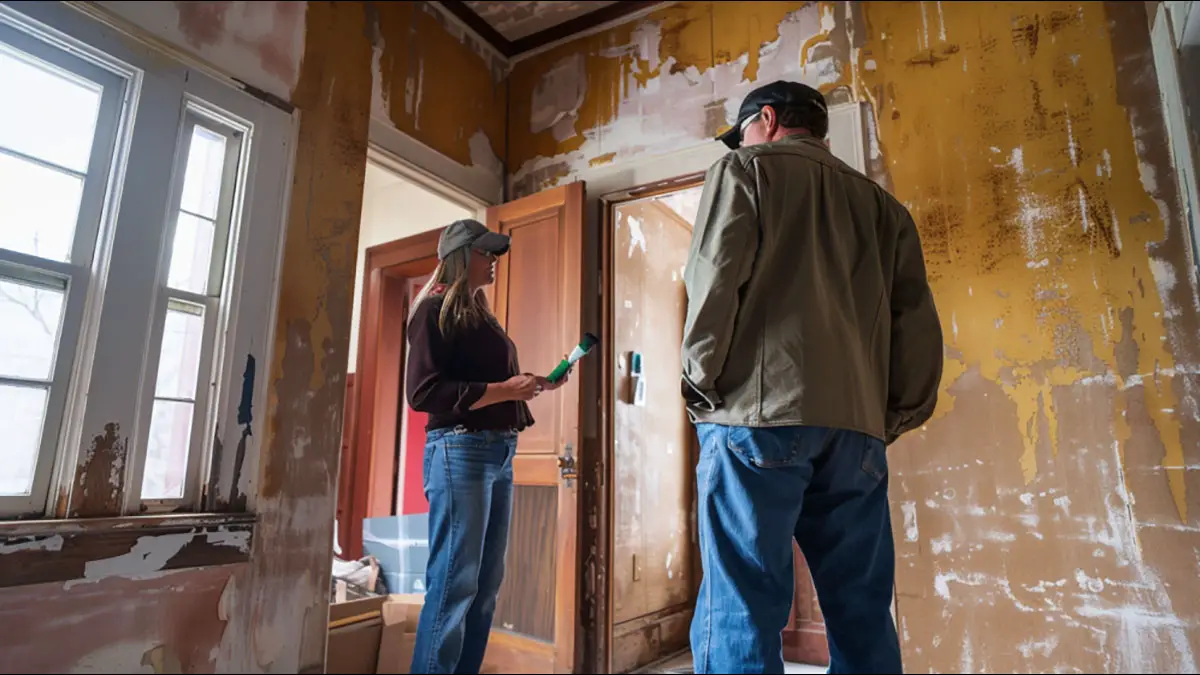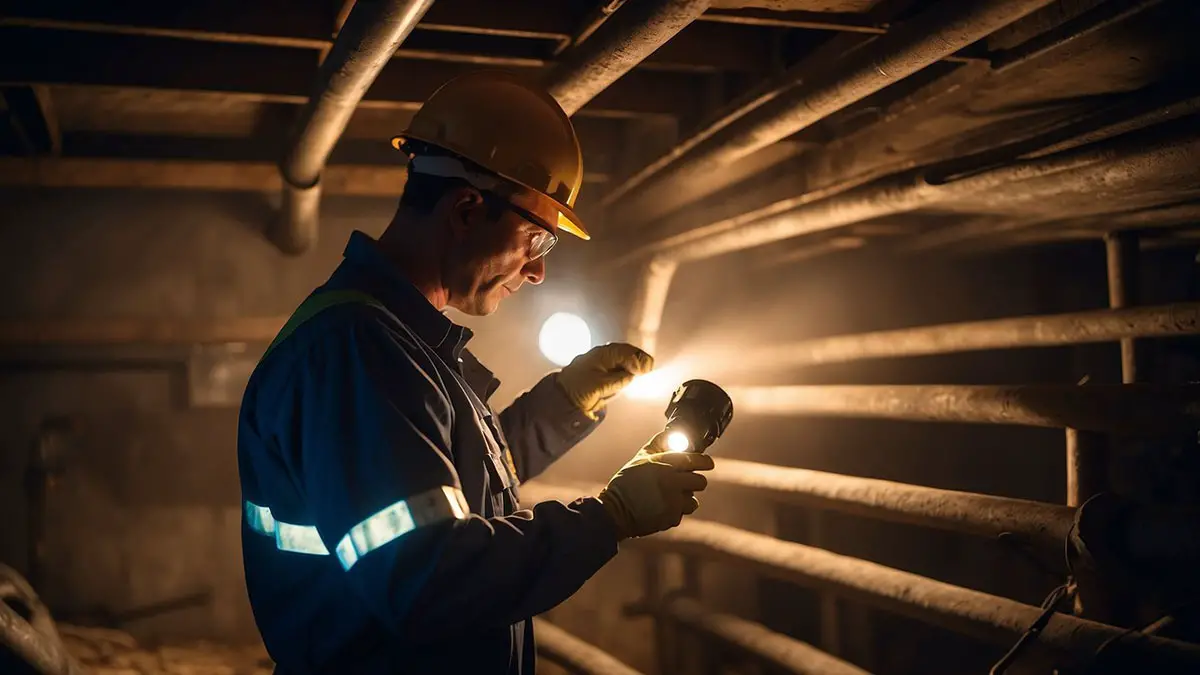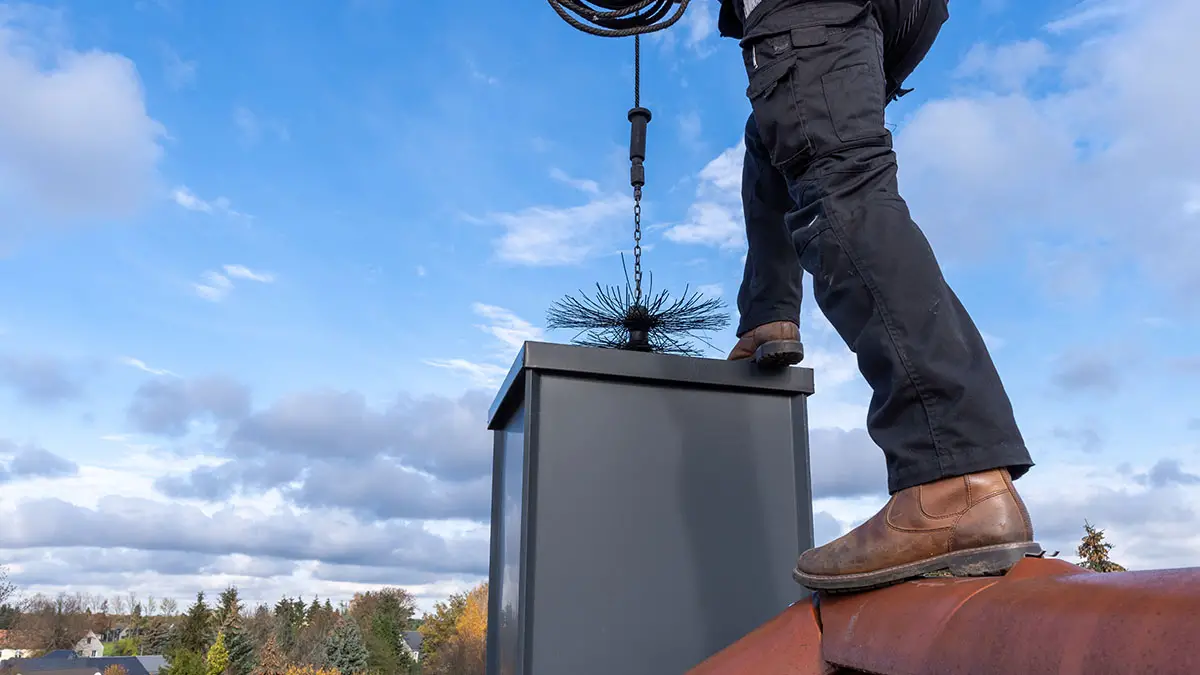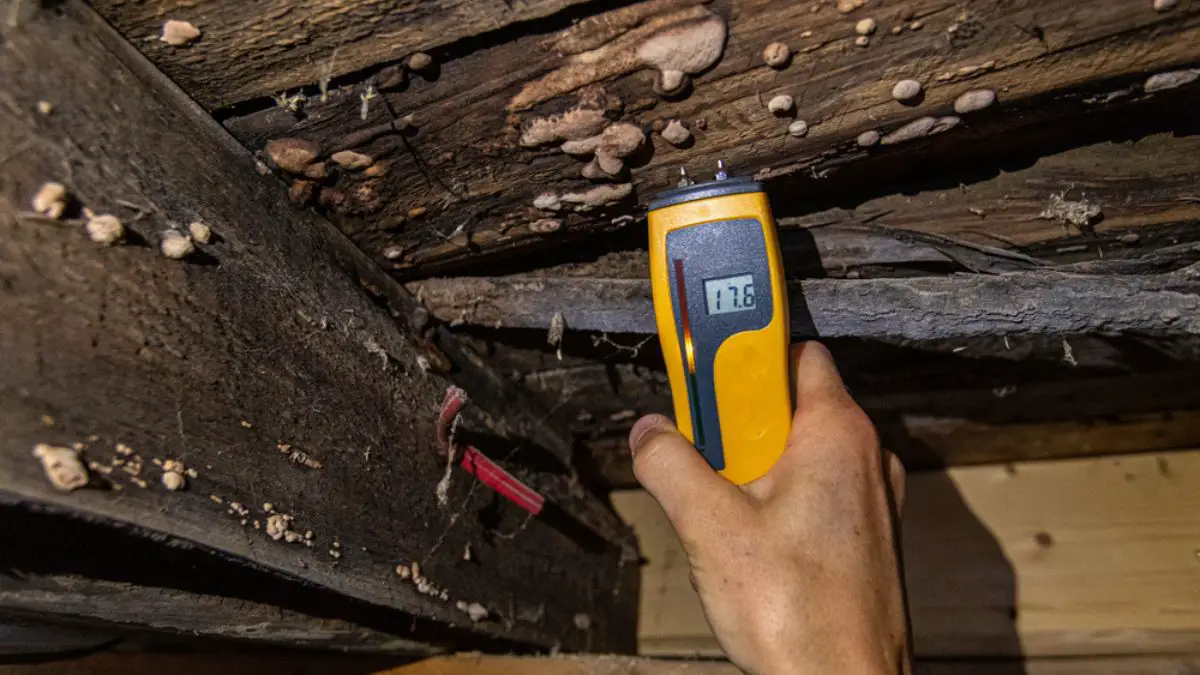When purchasing a home, it is essential to ensure that you are making an informed decision. A home inspection is one of the critical steps in buying a house. One essential step in buying a house is choosing a home inspector.
It is essentially a visual examination of a property’s physical structure and systems, from roof to foundation. The primary purpose of this inspection is to identify potential major issues or defects that may not be visible during a regular viewing or walk-through.
A home inspector is responsible for assessing the property’s true condition and identifying potential issues affecting its value, safety, or livability. Choosing the right home inspector is crucial to ensure that you make an informed decision when purchasing a house.
| Key Takeaways |
|---|
| Research potential home inspectors online and check their reviews |
| Outline the qualifications you want an inspector to possess, including licensing, education, and professional memberships |
| Choose an experienced inspector with a reputation for honesty and integrity |
| Choose a home inspector whose credentials include certification by a professional organization such as ASHI or InterNACHI |
| Consider the inspector’s areas of expertise, especially if you have specific concerns about the house |
| Look for an inspector who provides a detailed inspection in their assessment of the home’s condition |
| Choose an inspector who is willing to communicate with you and answer any questions you may have during the inspection process |
| Price shouldn’t be the only factor to consider when choosing an inspector. Focus on finding a qualified, experienced, and reputable inspector who thoroughly inspects the property’s condition. |
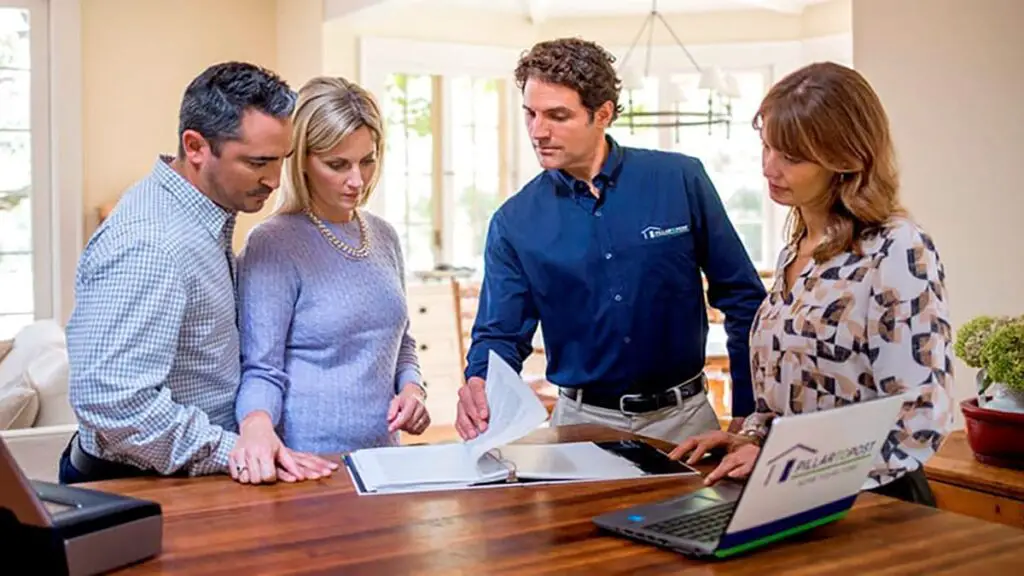
Importance of a Professional Home Inspection
An inspection helps buyers understand the current condition of the property and provides an opportunity to negotiate repairs or adjustments with the seller before closing the deal.
It can also give buyers peace of mind knowing that they have made an informed decision about one of their largest financial investments. On top of that, it can help identify any potential safety hazards, such as outdated electrical wiring or mold.
A home inspector will assess various aspects such as plumbing, roofing, heating and cooling systems, structural elements like walls and floors, insulation, and ventilation systems among others.
Qualifications and Experience
Certification and Licensing Requirements
When choosing between prospective inspectors, it is essential to ensure they meet the necessary certification and licensing requirements. States that regulate home inspectors require passing the licensing exam and apply for renewal annually or bi-annually.
Home inspectors must be licensed in most states, and their certification or license should be readily available for clients to verify. A professional inspector should also have a valid insurance policy covering errors, omissions, and other liabilities that may arise during the inspection.
In addition to state-level licensing requirements, reputable home inspection organizations such as the International Association of Certified Home Inspectors (InterNACHI) or the American Society of Home Inspectors (ASHI) also offer certification programs.
NACHI certification is considered the gold standard in the industry and requires stringent educational requirements, experience in the field, as well as passing a rigorous exam.
Years of Experience in the Industry
Experience is an essential factor when choosing a home inspector. You want someone who has been in business long enough to have seen it all before but not so long they have grown complacent or outdated. Ideally, you want an inspector with at least three years of experience under their belt.
This ensures they have gained valuable knowledge and expertise from inspecting numerous homes over time. An experienced full-time home inspector can provide insights into hidden issues not always visible at first glance.
They can recognize common issues affecting houses within certain neighborhoods or communities. An inspector with experience is more adept at evaluating unique properties, such as historic homes or homes with architectural complexities.
Specializations or Areas of Expertise
Some qualified inspectors specialize in specific kinds of inspections, such as radon testing, septic inspections, lead paint assessments, electrical inspections, etc. It’s important to ask about any additional specializations when considering hiring an inspector.
These environmental issues have certification requirements beyond that of becoming a home inspector. These often require a separate inspection that is outside the scope of a typical inspection.
Ask if they have any certifications related to your specific needs and check their experience levels in those areas through reviews from previous clients or referrals from trusted sources.
Hiring someone with specialized knowledge can save time and money in the long run, as they can identify issues that may have gone unnoticed by a generalist inspector.
Reputation and Reviews
When it comes to choosing a home inspector, reputation and reviews are critical factors to consider. It is essential to choose a trustworthy inspector with a good reputation in the industry, as well as positive reviews from previous clients. A good reputation is usually an indicator of excellent service delivery and attention to detail.
Online Reviews from Previous Clients
One of the easiest ways to assess an inspector’s reputation is by checking their online reviews. Most home inspectors have a website or social media presence that allows clients to leave feedback about their services.
These reviews provide valuable insights into the quality of work delivered by the inspector and can help prospective clients make informed decisions.
It is essential to consider both positive and negative reviews when assessing an inspector’s reputation. Negative feedback may indicate areas where the inspector needs improvement or may highlight potential red flags for prospective clients.
Referrals from Trusted Sources
In addition to online reviews, referrals from trusted sources can also help assess an inspector’s reputation. Referrals could come from friends, family members, or real estate agents who have worked with the inspector before or know someone who has.
Real estate agents can be particularly helpful in providing referrals since they work closely with inspectors as part of their job. The benefit of referrals is that they provide first-hand information about how reliable, professional, and thorough a home inspector is during the inspection process.
Professional Affiliations and Memberships
An inspector’s professional affiliations and memberships can also provide insight into their experience level and commitment to their profession.
Membership in reputable organizations like the International Association of Certified Home Inspectors (InterNACHI) usually requires rigorous standards for certification or licensing requirements that members must meet.
In addition to providing access to resources such as continuing education, certification, and training opportunities for members, professional affiliations and memberships can also be a reflection of an inspector’s commitment to upholding ethical standards in the industry.
InterNACHI inspectors must agree to abide by a strict Code of Ethics. You can read the NACHI Code of Ethics for more.
It is essential to verify that an inspector’s affiliations and memberships are current. This will ensure that they are up to date with industry trends, best practices, and new regulations.
Reputation and reviews are critical factors to consider when choosing a home inspector. By taking the time to research an inspector’s reputation through:
- Online reviews
- Referrals from trusted sources
- Professional affiliations or memberships
With this information, prospective clients can decide which inspector will provide the highest quality services for their needs.
Errors and Omissions Insurance
When choosing a home inspector, one crucial aspect that should not be overlooked is their Errors and Omissions (E&O) insurance coverage.
E&O insurance protects both the home inspector and the client in case of any errors, omissions, or negligence in the inspection process. It serves as a safety net to mitigate potential financial risks and legal disputes arising from oversights or mistakes.
Here are key points to consider regarding Errors and Omissions insurance when choosing a home inspector:
- Protection for Clients: E&O insurance protects clients from financial losses resulting from mistakes made by the home inspector during the inspection process. It provides coverage for any errors, omissions, or negligence that could result in costly repairs or issues discovered after the purchase of the property.
- Professionalism and Accountability: By choosing a home inspector with E&O insurance, you are selecting an inspector who takes their profession seriously and is committed to providing quality services. This insurance acts as a mark of professionalism and demonstrates their dedication to accountability.
- Risk Mitigation: No matter how experienced or meticulous a home inspector may be, human errors can occur. Liability insurance acts as a safety net to minimize the financial impact of potential oversights or missed issues during the inspection. It provides a layer of protection for all parties involved.
- Legal Protection: In the unfortunate event of a dispute or legal claim arising from errors or omissions in the inspection, E&O insurance can cover the costs associated with legal defense, settlements, or judgments. It helps ensure that both the inspector and the client are protected in such situations.
- Verify Coverage: When selecting a home inspector, it is essential to inquire about their E&O insurance coverage. Ask for proof of insurance and verify the policy details, including coverage limits and expiration dates. A reputable home inspector will willingly provide this information and answer any questions you may have.
Inspector’s liability insurance is not a substitute for a thorough evaluation of a home inspector’s qualifications, experience, and reputation.
It is one of the critical factors to consider alongside other criteria when making your final decision. It provides an added layer of confidence and security, giving you peace of mind as you navigate the complex world of real estate transactions.
Inspection Process
Types of Inspections Offered
When choosing a home inspector, it’s important to consider the types of inspections they offer. Some inspectors may only perform a standard home inspection, while others may offer additional services such as radon testing, mold testing, or termite inspections.
It’s important to determine what type of inspection is needed for the specific property being considered and ensure that the inspector offers that service.
Additionally, some inspectors may also specialize in unique types of properties such as historic homes or condominiums. It’s important to choose an inspector who has experience with the specific type of property being considered in order to ensure an accurate assessment.
Duration of Inspections
The duration of a home inspection can vary depending on a variety of factors including the size and age of the property, as well as any additional services being performed.
However, it’s important to choose an inspector who takes their time and thoroughly evaluates all aspects of the property. A typical home inspection can take anywhere from 2-4 hours on average.
If an inspector promises to complete an inspection in less time than this, it may be a red flag that they are not thorough or are cutting corners.
On the other hand, if an inspection takes significantly longer than this without justification for additional services being performed, it could indicate that the inspector is taking too much time or lacks efficiency.
Related Reading: How Long Does a Home Inspection Take to Complete?
Extent and Thoroughness of Inspections
One key factor when choosing a home inspector is their extent and thoroughness during inspections.
A reputable inspector should go beyond just checking off boxes on a home inspection checklist – they should have deep knowledge about all aspects related to building systems and structures involved in inspecting properties.
Inspectors should examine all visible areas inside and outside your house, including roof systems, crawl spaces, ventilation, electrical, plumbing, heating, air conditioning, and appliances according to industry standards of practice.
NACHI and ASHI have their own Standards of Practice. Most licensing states will adopt the SOPs of one of these organizations. However, some states set their own standards.
The inspection should also involve checking for the presence of pests, mold, or any other hazardous materials that can negatively affect the condition of the home.
Be wary of an inspector who rushes through an inspection, or doesn’t seem to take their time in carefully evaluating all aspects of your home.
The more thorough the inspector is, the more likely you are to get a comprehensive report on your property’s condition that can help you make informed decisions about any necessary repairs or upgrades.
Reporting and Documentation
After a quality home inspection, the inspector should provide a detailed report of their findings. This report is important for the homeowner and potential buyers as it outlines any issues or concerns with the property. It’s important to choose an inspector who provides clear and comprehensive reports that are easy to understand.
Format and Delivery Method of Inspection Reports
The format and delivery method of reports can vary from one home inspector to another. Some inspectors provide a printed copy of the report at the end of the inspection, while others may email it to you later on.
It’s important to know what type of report you will receive, how long it will take for you to receive it, and what format it will be in. In addition, some inspectors may provide more detailed reports than others.
For example, some may include recommendations on how to remedy any issues found during the inspection, while others may only list the problems without providing solutions. Be sure to ask your potential inspector about their reporting process so that you can choose one that meets your needs.
Inclusion of Photos, Videos or Other Media
Along with a written report detailing their findings, many inspectors also include visual aids such as photos or videos in their reports. These visual aids can help homeowners better understand any issues found during the inspection by providing a clear picture or video recording of exactly what was found.
If an inspector does not include visual aids in their reports but you feel they would be beneficial for your understanding of any problems with the property, don’t hesitate to ask if they can add them in.
Similarly, if an inspector does include visual aids but they are unclear or unhelpful in understanding specific issues, be sure to clarify with them what is being shown and why it is relevant.
Clarity and Comprehensiveness of Reports
The clarity and comprehensiveness of a home inspector’s report is perhaps the most important factor to consider when choosing an inspector.
A good inspection report should clearly outline any issues found during the inspection, as well as provide recommendations for how to address them. If a report is unclear or difficult to understand, it may be difficult for homeowners or potential buyers to know what steps they need to take in order to remedy any issues.
Similarly, if a report is not comprehensive and leaves out important information or findings, it may not be providing an accurate picture of the property’s condition. Be sure to review sample reports from potential inspectors before choosing one so that you can gauge their level of clarity and comprehensiveness.
Related Reading: Making Sense of Your Home Inspection Report
Communication Skills
Effective communication skills are essential for a home inspector to be able to convey complex technical information in a manner that is easily understood by the client.
A highly qualified home inspector will have the ability to explain technical information in layman’s terms, without using jargon or acronyms that may not be familiar to the homeowner.
In order to determine whether a home inspector has strong communication skills, it is advisable for clients to schedule an initial consultation before committing to an inspection.
During this consultation, clients should ask questions and assess the inspector’s responses. If the inspector is patient and thorough when answering questions, it is likely that they possess strong communication skills.
Additionally, if they provide clear explanations of complex issues in a way that can be easily understood by someone without technical knowledge, this indicates an ability to communicate effectively. Home inspectors should also be able to respond promptly and effectively when clients have questions or concerns.
Communication should not end once the inspection report has been delivered; rather, inspectors should make themselves available for follow-up questions or clarifications as needed.
A good way of assessing responsiveness is by checking online reviews from previous clients and evaluating their feedback on how well the inspector communicated with them throughout the process.
Related Reading: 25 Questions to Ask a Home Inspector
Professionalism in Demeanor
In addition to having excellent communication skills, it is important for home inspectors to maintain a high level of professionalism throughout their interactions with clients.
Professionalism encompasses many qualities such as punctuality, appearance, conduct during inspections and report delivery. Punctuality shows respect for the client’s time commitment and indicates reliability which reassures trustworthiness.
There should be no delay from agreed upon scheduled appointments unless there are extenuating circumstances beyond their control such as unforeseen traffic congestion or emergencies. A professional demeanor also includes conducting oneself appropriately during inspections.
This means treating the homeowner’s property with respect, being courteous, and not making any derogatory comments about the house or its occupants. Inspection companies should avoid offering personal opinions and instead focus on providing factual information to clients.
Report delivery is a crucial aspect of professionalism. The reports must be precise, complete and timely.
A professional home inspector should deliver a thorough report that covers all aspects of the inspection in detail. They should provide explanations for any deficiencies found in an easy-to-understand format with photographs or diagrams as necessary.
Cost and Value for Money
Comparison with Other Inspectors’ Fees
When it comes to hiring a home inspector, the cost of their services is an important factor to consider. However, comparing prices with other home inspectors in your area is also essential. Remember that the lowest price doesn’t necessarily mean the best value for money.
Some inspectors may offer lower rates but may not have enough expertise or experience to provide thorough inspections. To avoid being swayed by cheaper prices, research other inspectors’ fees and compare them with your preferred inspector’s proposed pricing structure.
Don’t hesitate to ask questions about what is included in their services and compare them with others. Ultimately, you want to choose a home inspector who offers fair pricing without compromising on quality.
What’s the average cost of a home inspection in your state? Check out our free Home Inspection Cost Calculator and FREE guide to How Much a Home Inspection Costs.
Transparency on Pricing Structure
Another crucial factor when considering cost is transparency in pricing structures. An excellent home inspector should have a clear and straightforward pricing structure that ensures you know what you’re paying for upfront.
Before hiring an inspector, request a detailed quote outlining all costs associated with your inspection so that there are no hidden or additional expenses later on. Ensure the quote includes any necessary additional inspections that may be required based on the age of your property or any specific concerns raised during your initial consultation.
Balance Between Cost, Quality, and Value
While cost is undoubtedly an essential aspect of selecting a home inspector, it should not be the only driving force behind your decision-making process. The quality and value of the service provided are equally important factors to consider.
An experienced home inspector can provide valuable insight into any potential issues with a property that could save you significant amounts of money down the line.
It’s essential to balance affordability against quality and experience when selecting an inspector. Selecting a home inspector requires careful consideration of several key factors beyond just their cost alone.
When selecting an inspector, compare their fees with others in your area, ensure they have a transparent pricing structure, and consider the value and quality of their services. With these factors in mind, you can find a home inspector who provides affordable and high-quality services that meet your needs.
Choosing a Home Inspector FAQs
How do I choose a qualified home inspector?
When choosing a home inspector, consider their qualifications, experience, certifications, and specializations. Look for licensed inspectors, with relevant training, and are members of professional organizations.
What should I ask potential home inspectors near me?
Important questions to ask include their qualifications, areas of expertise, inspection process, sample reports, and how they handle specialized inspections. Inquire about their experience, certifications, and any additional services they offer.
Are online reviews helpful in selecting a home inspector?
Yes, online reviews can provide valuable insights into a home inspector’s reputation. Read reviews from previous clients to gauge their professionalism, thoroughness, and communication skills.
Can I get referrals for a reliable home inspector near me?
Yes, asking for referrals from trusted sources such as friends, family, real estate agents, or other professionals in the industry can help you find a reputable home inspector.
How long does a typical home inspection take?
The duration of a home inspection varies depending on the size, age, and condition of the property. On average, a thorough inspection can take 2 to 3 hours, but it can be longer for larger or more complex properties.
What should a home inspection report include?
A comprehensive home inspection report should include detailed findings about the condition of various components of the property, including structural elements, electrical systems, plumbing, HVAC, and more. It may also include recommendations for repairs or further evaluations.
Can I attend the home inspection?
It is generally recommended for buyers to attend the home inspection. This allows you to see the issues firsthand, ask questions, and gain a better understanding of the property’s condition.
Should I hire a specialized inspector for specific concerns?
Yes, for specific concerns like mold, termites, or electrical issues, it may be necessary to hire specialized inspectors who have the expertise and equipment to thoroughly evaluate those areas.
When should I schedule a home inspection during the buying process?
It is typically recommended to schedule a home inspection soon after an offer is accepted. This allows sufficient time for any necessary negotiations or further evaluations before the closing of the sale.
Conclusion
Making an informed decision when choosing a home inspector is crucial for having a successful home buying process.
The inspection report will provide valuable information about the condition of the property and any potential issues that may need to be addressed. This information can help you negotiate with the seller or decide whether or not to move forward with the purchase.
Additionally, investing in a high-quality inspection can save you money in the long run by identifying potential repairs or issues before they become more significant problems. It can also give you peace of mind knowing that a qualified professional has thoroughly inspected your new home.
Choosing the right home inspector requires some research on your part but is well worth it in the end. By taking into account all of these key factors detailed above, you can make an informed decision about which inspector to hire and ensure that your home buying process goes as smoothly as possible.




